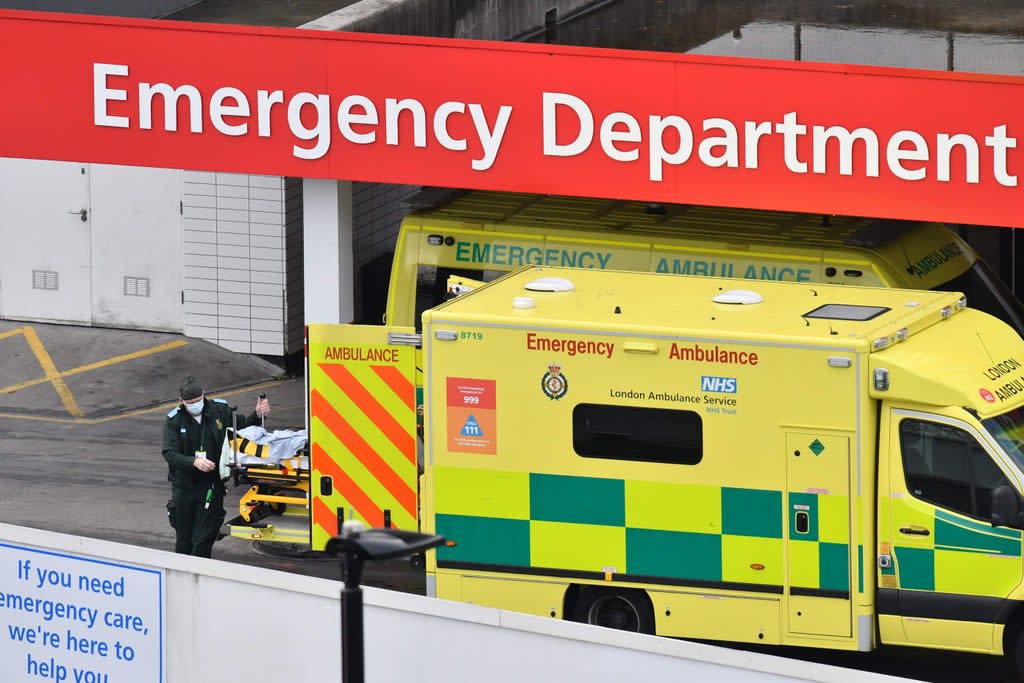UK sees highest daily number of Covid deaths since March

A further 223 people have died within 28 days of testing positive for Covid as of today, according to data from the Department of Health and Social Care (DHSC).
It is the highest figure for daily reported deaths since 9 March.
The new daily death toll brings the UK total to 138,629 since the beginning of the pandemic.
Follow Covid news - live: NHS chiefs urge government to implement winter ‘plan B’
Separate figures published by the Office for National Statistics show there have now been 164,000 deaths registered in the UK where Covid-19 was mentioned on the death certificate.
As of 9am today, there had been 43,738 more lab-confirmed Covid cases in the UK, the DHSC said, which is a figure almost eight times more than the 5,738 new cases recorded on 9 March.
For the past week, the number of new daily positive cases surpassed 40,000. Yesterday (18 October), the number of new cases almost broke 50,000 with a total of 49,156.
Downing Street has said it is keeping a “very close eye” on increasing numbers of cases, and acknowledged there are signs that the number of hospital admissions and deaths are also rising.
Despite the rising numbers of cases and deaths, Sage scientists are only meeting once a month for talks – according to the i newspaper.
The government's scientific advisory committee has abandoned its weekly meetings, according to the report, as its last meetings were on 14 October, 9 September, and 22 July.
Prime Minister Boris Johnson told his Cabinet that he believes the government’s current coronavirus plan is keeping the virus under control.
But he reiterated that ministers “must put all our energies into our vaccination programmes”.
Mr Johnson’s official spokesman said: “The most important message for the public to understand is the vital importance of the booster programme and indeed for those children who are eligible to come forward and get our jab.
“We’re seeing some groups come forward slightly more slowly than they did, perhaps when they were getting their first or second vaccination.
“It’s important that the public understand that getting your booster jab is just as important as getting your first and second dose, and we need individuals to come forward because it is a huge benefit to them and wider society.”
It comes as Professor Neil Ferguson, from Imperial College London, told BBC Radio 4’s Today programme that immunity in the UK appears to be “waning” because of the country’s early success in rolling out the vaccination scheme.
The UK’s Covid vaccination scheme started in December 2020, and was the first one in the world.
Accelerating the booster programmes and vaccinating teenagers would be “critical” to reducing transmission of the virus, Prof Ferguson said.
He also urged caution, saying: “People need to be aware that we currently have higher levels of infection in the community than we’ve almost ever had during the pandemic.”
Children aged between 12 and 15 years old will be able use the national booking service to get their Covid jabs, health secretary Sajid Javid had announced in September before the start of the school year.
Today, he urged people to get both their flu jab and Covid booster to “give themselves and their loves ones the best possible protection in the months ahead”.
Mr Javid said he had “done his bit” after having his flu vaccination at a pharmacy in central London.
The government has launched the biggest flu programme in the NHS’s history, with more than 35 million people in England eligible for a jab.
Covid booster jabs are also being rolled out, with around 28m people in England eligible.
Sir David King, the government’s chief scientific adviser from 2000 to 2007, told Sky News: “I think the booster scheme has been rolled out extremely slowly.”
A total of 3.1m people in England have had a Covid booster jab in the first month of the scheme that was launched on 16 September, the NHS said last week.
Almost 95m Covid vaccines have been given in the UK, according to DHSC data up to 18 October. Nearly 50m of them were first doses, and about 45.4m of them were second jabs.
Read More
Give young teenagers second Covid jab to curb infections surge, Neil Ferguson tells ministers
Covid cases are rising again. Has Boris Johnson learnt from his mistakes?
COVID-19 and pregnancy: Women regret not getting the vaccine
Oxford scientists working on new Covid vaccine to target Delta variant


